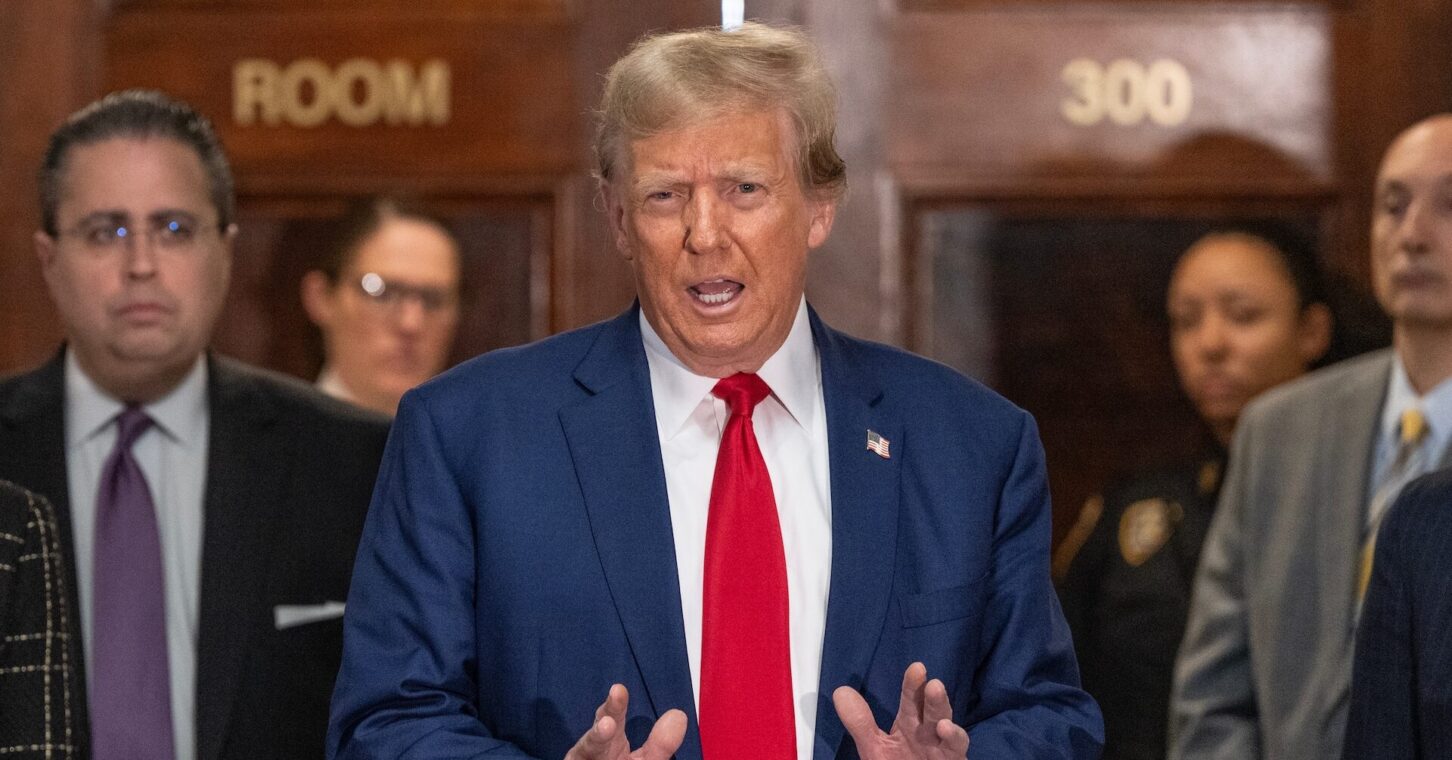
After a New York jury found Donald Trump guilty on 34 felony counts of falsifying records, the verdict sparked a host of opinions about the fairness of the trial and result, and questions about its impact on this year’s election.
I can’t answer those questions. What I do know is that, at the first moment in U.S. history that a former president was charged with and then convicted of a crime, every American ought to want our legal system to be operating at the highest possible level, with strong public confidence.
That isn’t the case at this moment.
Not long ago, the notion that a convicted felon could be elected to any high office would have been outrageous. As I write, it’s at least an even bet. Why?
There are many factors, including some singular characteristics of Trump himself. He has defied the laws of political gravity many times, in many ways.
But it would be wrong to consider this a uniquely Trumpian situation. Our legal system is under duress in numerous ways. My point here is not to make you suspicious of the system, or of Trump’s verdict, but to explain why many people are.
First, some data: Gallup found public confidence in the criminal justice system hit a record low of 14% in 2022, recovering slightly to 17% last year. Both Republicans and Democrats give the system low marks. On the question of how the system treats the accused, only about half of Americans rated it very or somewhat fair, compared to two-thirds of Americans in 2003.
One reason for this attitude is that our society is over-criminalized. Attorney Harvey Silverglate famously described this in his book, “Three Felonies a Day”:
“The average professional in this country wakes up in the morning, goes to work, comes home, eats dinner, and then goes to sleep, unaware that he or she has likely committed several federal crimes that day. Why? The answer lies in the very nature of modern federal criminal laws, which have not only exploded in number, but, along with countless regulatory provisions, have also become impossibly broad and vague.”
Americans are keenly aware of this encroachment, and not only by federal laws. Such excess breeds contempt.
Rather than reforming overreaching or arbitrary laws and regulations, we have seen certain prosecutors decide to ignore entire classes of crimes. While prosecutors have always had the discretion to pursue only the cases their resources allow, this concept is increasingly abused.
In 2022, voters in San Francisco recalled district attorney Chesa Boudin over his refusal to prosecute numerous types of crimes and his decisions to release repeat offenders who then offended again. One example was a 31-year-old man who, according to a February 2021 news account, was “charged with multiple crimes in connection with an eight-car crash” that killed a pedestrian. The suspect was “on probation for grand theft, recently arrested for DUI, and was allegedly driving a car that was reported stolen.”
There have been similar recall efforts elsewhere. One targets the district attorney for Athens, Deborah Gonzalez. She has been criticized not only for declining to prosecute offenses such as drug possession, but for mismanaging her office. Prosecutors have been removed or resigned from office in Florida and Missouri.
Given the frequency of such stories, it should be no surprise that many Americans view prosecutors’ decisions skeptically.
Finally, despite the post-Trump-verdict paeans from some quarters about no one being “above the law,” that’s obviously not true. One need only compare the periodic convictions of low-level federal employees or retirees for improper handling of classified documents with the stories of politicians, from both parties, who avoided consequences for similar actions.
Like most politically powerful people, Trump will probably be fine in the end. The folks most likely to be harmed by problems with our legal system are everyday Americans just trying to live their lives. They need not only the protection of the law, but confidence in the justice system.
